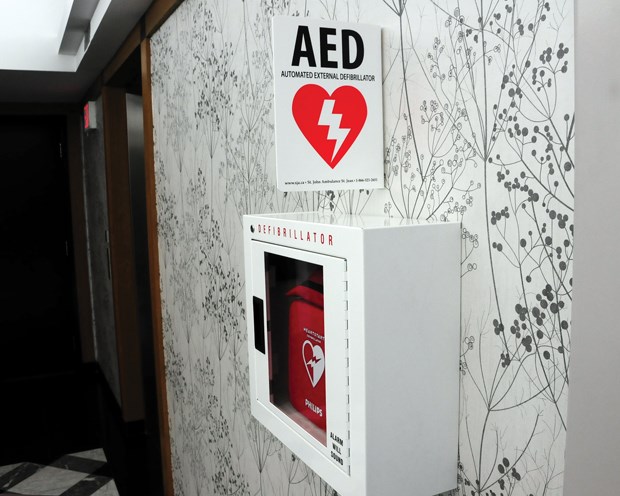When someone is under cardiac arrest, for every minute that passes without help their chance of survival drops by as much as 10 per cent.
That's why B.C. Emergency Health Services recently launched its provincial database of automatic external defibrillators, which will help 9-1-1 dispatchers connect a caller with the nearest device.
The B.C. AEDAEDAED Registry is a free service integrated into the Computer Aided Dispatch system, which dispatchers use to direct emergency medical services across the province. ccording to health services, dispatchers can locate a registered defibrillator within a 300-metre radius of an incident.
A here are about 288 AEDAEDAEDs registered on the list so far, but hundreds more remain unregistered in B.C.
The Heart and Stroke Foundation is urging those with an installed AEDAEDAED to record the device with the provincial registry so 9-1-1 dispatchers can connect those in an emergency with the nearest available device.
"The new registry is a vital step in helping people find the closest AEDAEDAED when there is a sudden cardiac arrest," stated Adrienne Bakker, Heart and Stroke Foundation CEOCEOCEO of B.C. and Yukon, in a media release. "Without defibrillation and CPRCPRCPR, the chance of survival decreases by seven to 10 per cent for each minute that passes." o see a list of available AEDAEDAEDs, or to register one, visit bcpadprogram.ca. T



